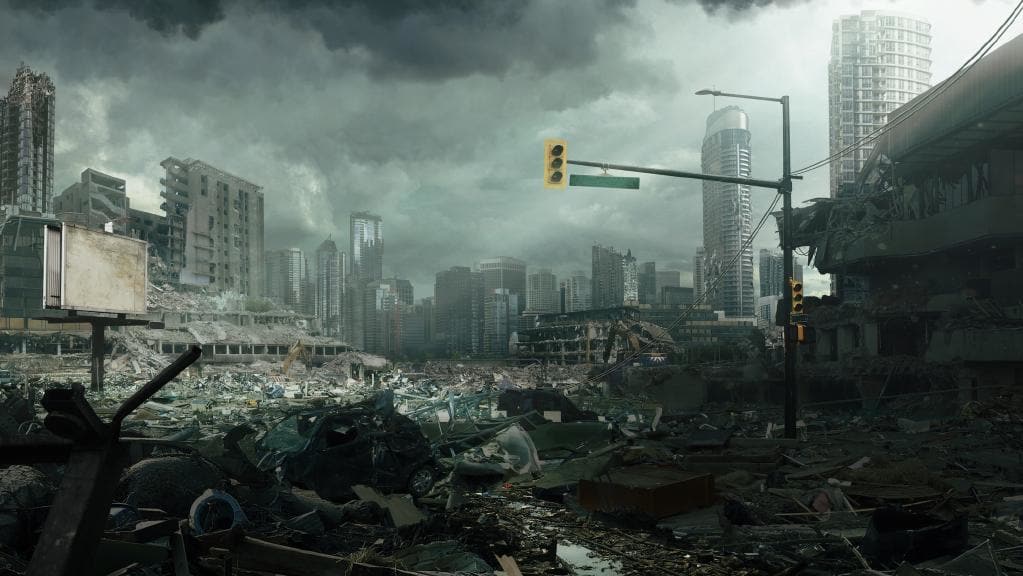MIT In 1973 Predicted The World Would End In 2040, Some Of Its Predictions Has Come True
Anita - Jan 01, 2019

According to a model developed by MIT, the Earth could end up its existence by 2020, which is based on the analysis of the impacts of human activities on the Earth.
- The Earth Is At Its Hottest It Has Ever Been In At Least 12,000 Years
- When Will Earth Lose All Of Its Energy And Cool Off?
- The Moon Used To Protect Earth With Its Magnetic Field, NASA Discovers
We have been in the technology golden age since the early 1970s. We succeeded in getting about computing, exploring space, and human life expectancy from the first stage.
However, some were afraid that it could only exist in a short time.
World3, a mathematical model, was developed by the MIT’s scientist team in 1973. It was considered the descendant of World1, which used to be studied by Jay W Forrester, a mathematician. World3 was designed to stimulate what impacts industrial growth, population, limited natural resources, and food production would have on the Earth life. Then, it estimated that the end date of the Earth is in 2040.
‘The Limits to Growth’, their study, has been one of the best-selling books about environment ever. The book focused on discussing the most Erath-influential factors including agricultural production, population increase, industrial output, pollution generation, and non-renewable resource decrease.
This old research is mentioned again in the press. A news agency in Australia re-aired the original story of this study, which first appeared decades ago. Accordingly, some study’s predictions are similar to what happens now. For example, pollution is forecasted to become more serious, which could threaten human beings; and human life quality would reach a peak before going down.
However, the study was also too pessimistic in some aspects. First, World3 hasn't been run for the last 14 years. Another one is that the study used to make many broad assumptions involving some factors that could not explain the reason for others.
All in all, if human beings still increase their population, pollute the environment and take advantage of the natural resources of the Earth in the way against sustainable development, we will kill ourselves. It is not likely to be 2040, or even 2050, however, the model got right when points out the fact that the human activities have really impacted in the long term.
Like the pollution problem, scientists have the same opinion that human beings are living at the age of pollution boom. Not only do we need to stop doing wrong, but we also have to carry out an effective solution to overcome the damage that we have caused before it becomes too late for us. We might just come to an end of proving the model wrong by changing the date up by just a few years.
Featured Stories

Features - Jan 29, 2026
Permanently Deleting Your Instagram Account: A Complete Step-by-Step Tutorial

Features - Jul 01, 2025
What Are The Fastest Passenger Vehicles Ever Created?

Features - Jun 25, 2025
Japan Hydrogen Breakthrough: Scientists Crack the Clean Energy Code with...

ICT News - Jun 25, 2025
AI Intimidation Tactics: CEOs Turn Flawed Technology Into Employee Fear Machine

Review - Jun 25, 2025
Windows 11 Problems: Is Microsoft's "Best" OS Actually Getting Worse?

Features - Jun 22, 2025
Telegram Founder Pavel Durov Plans to Split $14 Billion Fortune Among 106 Children

ICT News - Jun 22, 2025
Neuralink Telepathy Chip Enables Quadriplegic Rob Greiner to Control Games with...

Features - Jun 21, 2025
This Over $100 Bottle Has Nothing But Fresh Air Inside

Features - Jun 18, 2025
Best Mobile VPN Apps for Gaming 2025: Complete Guide

Features - Jun 18, 2025
A Math Formula Tells Us How Long Everything Will Live
Read more

ICT News- Feb 18, 2026
Google's Project Toscana: Elevating Pixel Face Unlock to Rival Apple's Face ID
As the smartphone landscape evolves, Google's push toward superior face unlock technology underscores its ambition to close the gap with Apple in user security and convenience.

ICT News- Feb 19, 2026
Escalating Costs for NVIDIA RTX 50 Series GPUs: RTX 5090 Tops $5,000, RTX 5060 Ti Closes in on RTX 5070 Pricing
As the RTX 50 series continues to push boundaries in gaming and AI, these price trends raise questions about accessibility for average gamers.

Mobile- Feb 17, 2026
Anticipating the Samsung Galaxy S26 and S26+: Key Rumors and Specs
The Samsung Galaxy S26 series is on the horizon, sparking excitement among tech enthusiasts.

Comments
Sort by Newest | Popular